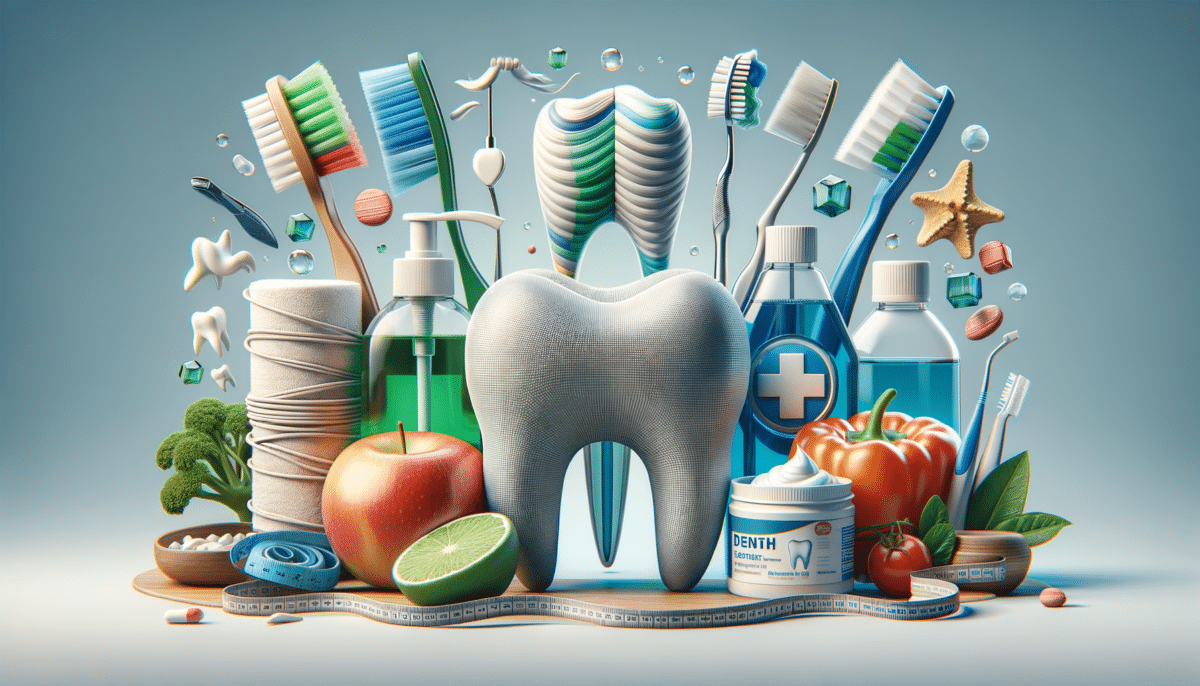Introduction to Teeth Care
Teeth are not just tools for chewing food; they play a critical role in our overall health and self-esteem. A bright smile can enhance confidence, while poor dental health can lead to serious health issues. Understanding the importance of teeth care is the first step towards maintaining a healthy oral environment. In this article, we’ll explore various aspects of teeth care, from daily habits to professional treatments, to help you achieve and maintain a robust dental health regime.
Daily Brushing and Flossing
One of the fundamental practices in teeth care is daily brushing and flossing. Dentists recommend brushing at least twice a day using a fluoride toothpaste. Fluoride is essential as it helps to strengthen tooth enamel and prevent decay. When brushing, it’s crucial to use a toothbrush with soft bristles to avoid damaging the gums and enamel. The technique matters too—gentle, circular motions are more effective than harsh, back-and-forth strokes.
Flossing is equally important as it removes food particles and plaque from between the teeth and under the gumline, areas that a toothbrush can’t reach. Regular flossing helps prevent gum disease and cavities, contributing to overall oral health. Some may prefer interdental brushes or water flossers as alternatives, which can be just as effective, especially for those with braces or dental work that makes traditional flossing challenging.
To sum up, incorporating these practices into your daily routine can significantly reduce the risk of dental problems. Remember, consistency is key, and a few minutes each day can make a substantial difference in your dental health.
The Role of Diet in Oral Health
What you eat has a profound impact on your teeth. A diet rich in vitamins and minerals supports oral health, while excessive sugar and acidic foods can lead to decay and erosion. Calcium and vitamin D are particularly important as they help maintain strong teeth and bones. Dairy products, leafy greens, and almonds are excellent sources of calcium, while sunlight exposure and fortified foods can help you get enough vitamin D.
On the other hand, sugary snacks and drinks provide a breeding ground for bacteria that produce acids, leading to tooth decay. It’s advisable to limit these foods and opt for healthier alternatives like fruits, vegetables, and nuts. Drinking water, especially fluoridated water, can help wash away food particles and bacteria, and it also contributes to saliva production, which is a natural defense against tooth decay.
Incorporating a balanced diet not only benefits your teeth but also contributes to your overall health. Remember, healthy eating habits are a cornerstone of maintaining a beautiful smile.
Regular Dental Check-Ups
Visiting your dentist regularly is a crucial aspect of maintaining oral health. Dental check-ups allow for early detection of potential issues such as cavities, gum disease, and oral cancer. Dentists recommend scheduling a visit at least twice a year, although some individuals may require more frequent visits depending on their dental health needs.
During a check-up, a dentist will perform a thorough cleaning to remove plaque and tartar that regular brushing and flossing can’t eliminate. This process helps prevent gum disease and tooth decay. Additionally, your dentist can provide personalized advice on improving your oral hygiene routine and recommend treatments if necessary.
Regular dental visits are an investment in your health. They not only prevent problems but also save you from costly treatments in the future. Establishing a good relationship with your dentist can lead to a lifetime of healthy smiles.
Advanced Teeth Care Techniques
For those looking to take their teeth care to the next level, there are advanced techniques and treatments available. Teeth whitening has become increasingly popular for those seeking a brighter smile. While over-the-counter products are available, professional whitening treatments are more effective and safer, as they are supervised by dental professionals.
Orthodontic treatments, such as braces or clear aligners, are another option for improving dental health and aesthetics. These treatments not only enhance the appearance of your smile but also improve bite function and oral hygiene by making it easier to clean aligned teeth.
For individuals with missing teeth, dental implants offer a durable and natural-looking solution. Unlike dentures, implants are permanent and function like natural teeth, improving both appearance and oral health.
These advanced techniques require professional consultation and should be considered based on individual needs and dental health conditions. They represent the forefront of dental care, offering solutions that enhance both function and aesthetics.
Conclusion: The Path to a Healthier Smile
In conclusion, maintaining strong and healthy teeth is a multifaceted endeavor that involves daily habits, dietary choices, regular dental visits, and sometimes advanced treatments. By adopting these practices, you can ensure your teeth remain healthy and your smile stays bright. Remember, oral health is an integral part of your overall well-being, and investing in it is investing in your future.
